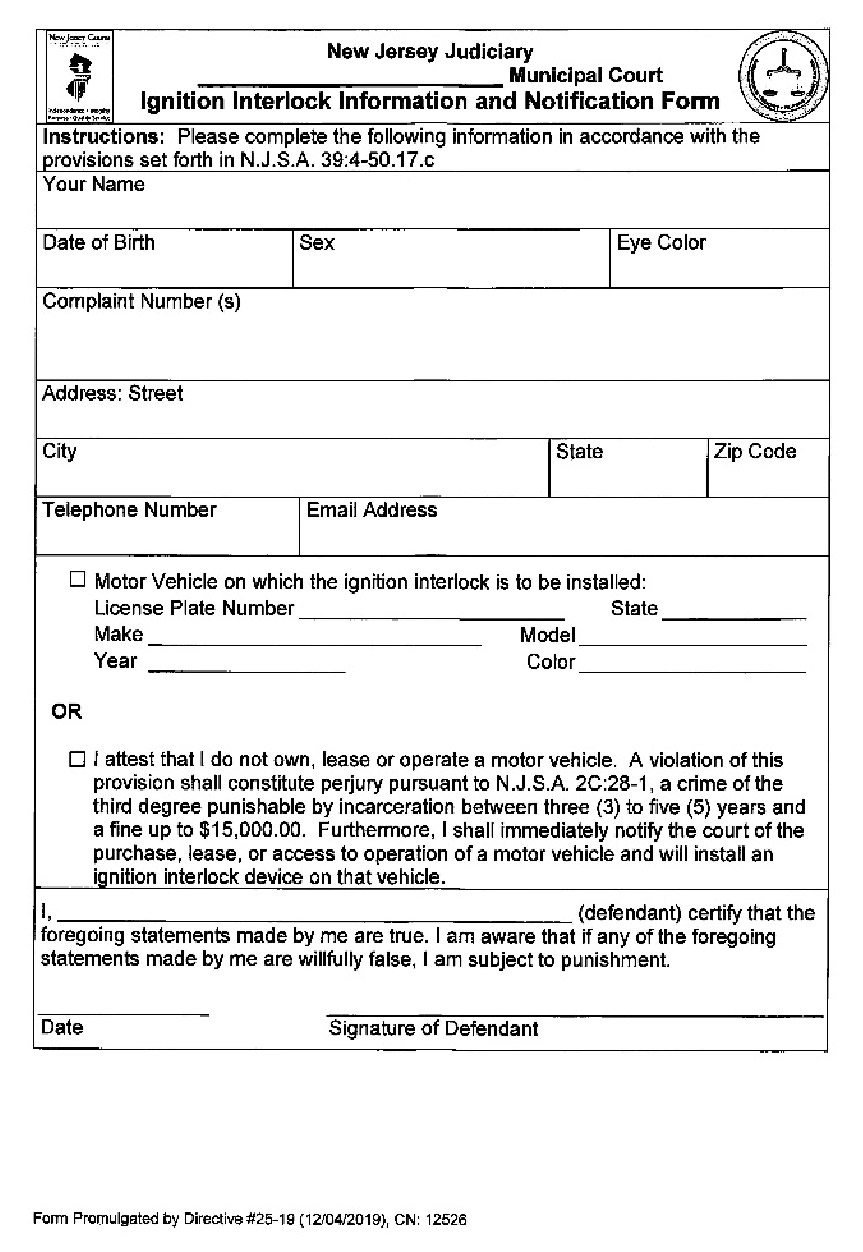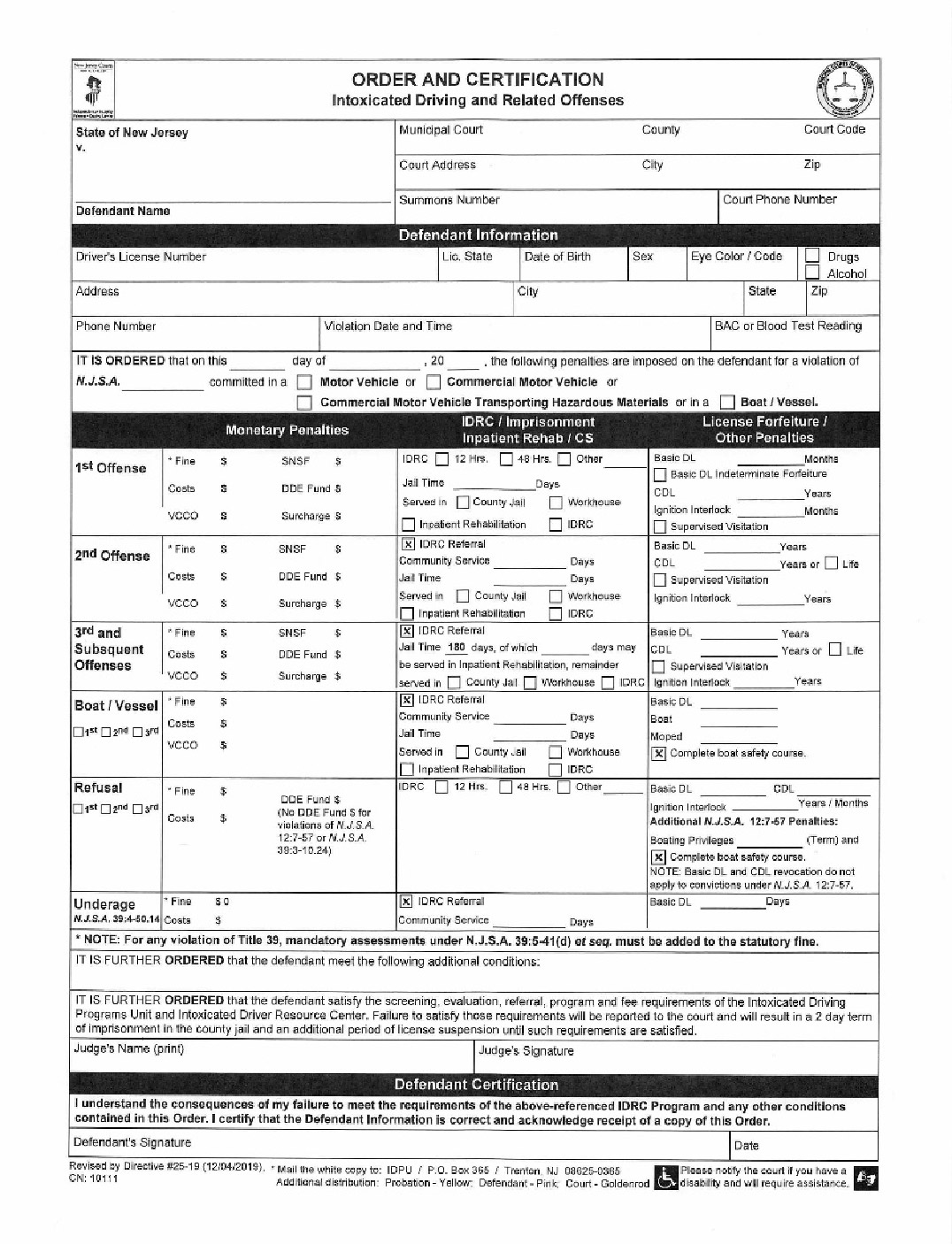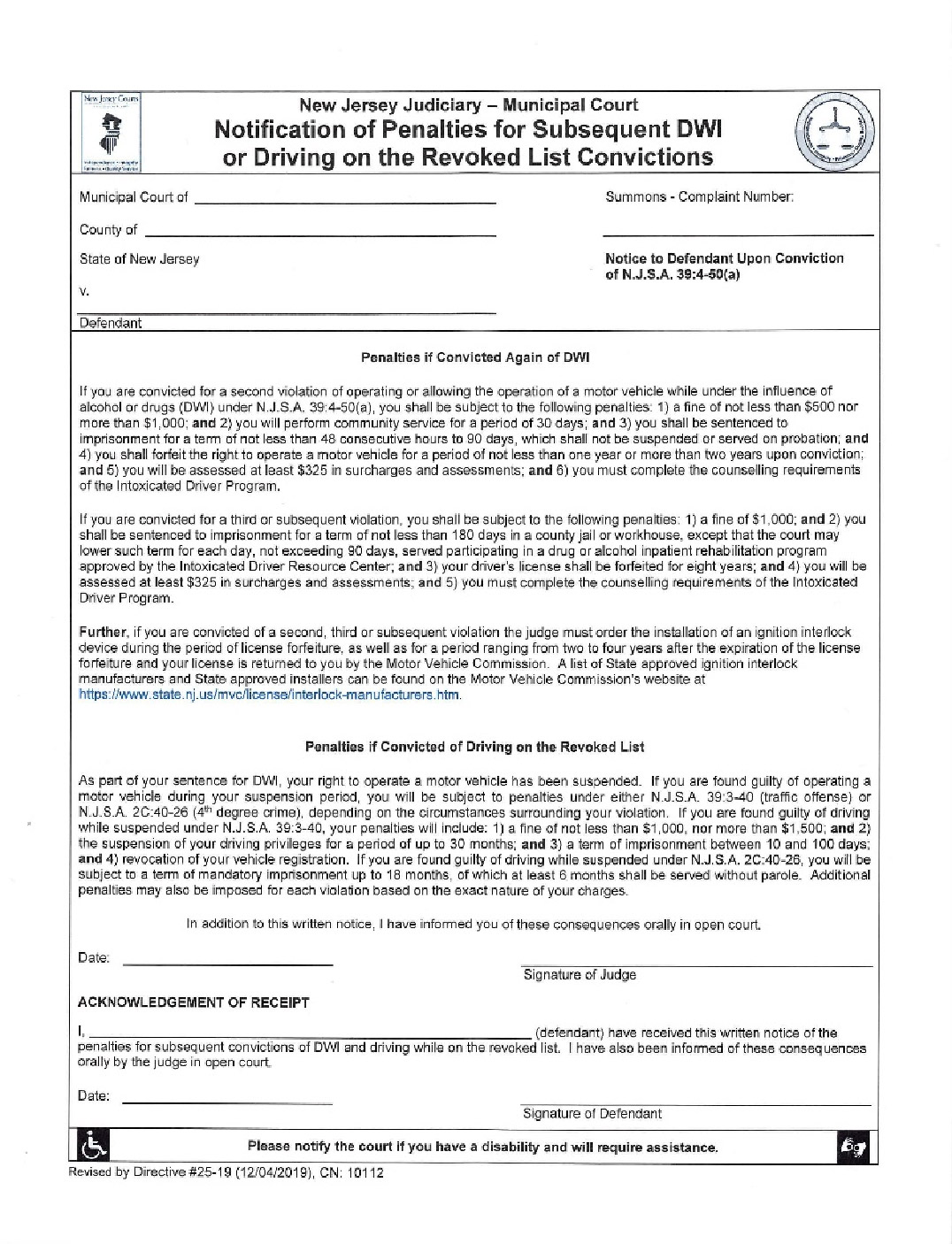 Last week, here on the Edward M. Janzekovich law blog, we discussed the first part of the official court notice was sent out to all New Jersey judges and court administrators on December 4, 2019. The Directive comes straight from the desk of the Director of the Administrative Office of the Courts – the Honorable Glenn A. Grant, J.A.D – and it addresses the new law drunk driving law that went into effect on December 1, 2019. Today, we continue to break down the directive and what it means for those facing charges of DWI after December 1, 2019.
Last week, here on the Edward M. Janzekovich law blog, we discussed the first part of the official court notice was sent out to all New Jersey judges and court administrators on December 4, 2019. The Directive comes straight from the desk of the Director of the Administrative Office of the Courts – the Honorable Glenn A. Grant, J.A.D – and it addresses the new law drunk driving law that went into effect on December 1, 2019. Today, we continue to break down the directive and what it means for those facing charges of DWI after December 1, 2019.
Directive #25-19 (“Implementation of New DWI Law (L. 2019, c. 248) – Includes Expanded Use of Ignition Interlock Devices for First-Time Offenders”) can be found on the NJCourts.gov website at https://njcourts.gov/notices/2019/n191205b.pdf?c=Uc5
One of the most important and useful parts of the new Directive was the inclusion of new standard forms and notices that the Director of the Administrative Office of the Courts is circulating to assist local municipalities and courts to advise defendants of their new rights and responsibilities.
Important Changes to Forms and Notices to Offenders
- Ignition Interlock Information and Notification Form – this form must be completed at sentencing by every defendant convicted with DWI or refusal AFTER December 1, 2019. Importantly, this form also has a section where a defendant can attest that they do not own, lease or have the ability to drive a motor vehicle. Found on Page 18 of the Directive.

- Order and Certification – Intoxicated Driving and Related Offenses Form – this is a form the court completes at sentencing that has now been modified. The modifications include removal of any reference to the “school zone” violation, providing a new check box for license forfeiture for an indeterminate time period for certain first-time offenders. All convicted defendants are required to provide a copy of this form to the ignition interlock installer they hire. Found on Page 19 of the Directive.

- Notification of Enhanced Penalties for Subsequent DWI or Driving on the Revoked List Convictions Form – this form advises defendants convicted after December 1, 2019 of potential future penalties if they are convicted of a subsequent DWI or found driving during a period of license forfeiture. Notably, this new form supersedes all the past versions of the form and under the directive is now required to be provided to all defendants found guilty of DWI or refusal, including those charged prior to December 1, 2019. Found on Page 20 of the Directive.

Important Procedural Change Regarding Removal of the Ignition Interlock Device
The AG Directive also provides clarification regarding the procedure for removing a court-ordered ignition interlock device. Specifically, it explains that once an offender completes the required installation period, the offender is eligible to have the interlock device removed from his or her vehicle IF they have complied with the necessary conditions during the installation period, as discussed previously on the Edward M. Janzekovich law blog. If they have successfully complied with the conditions, the ignition interlock installer is required to provide the offender with a certification that they can take to the Motor Vehicle Commission (MVC) indicating their successful completion.
Alternatively, if the installer determines that an offender has failed to comply with one or both conditions specified by law, the vendor is then required to send notice of the non-compliance to BOTH the Motor Vehicle Commission and the relevant municipal court. The installer is expected to provide specific reasons why the offender did not comply, such as what requirement was violated. If a municipal court receives such a notification, by law they then must determine whether to extend the ignition interlock period (potentially up to another 90 days) or else advise the MVC that the offender has satisfied their ignition interlock requirements. This is all determined at a court hearing, where the offender gets the opportunity to refute a claim that he or she was non-compliant. As always, if you or someone you know has been arrested, charged, or convicted of DUI/DWI and is undergoing this difficult process, it is important to get good legal advice from an experienced attorney as soon as possible.
NJ DWI Attorney Edward M. Janzekovich Discusses Information You Need to Know
The law is constantly changing. If you or someone you know has been arrested, charged, or convicted of DUI or DWI, it is important to speak with an experienced attorney who is always up to date on the newest changes. Hiring the right lawyer can make all the difference. To speak with an experienced New Jersey DWI lawyer about your situation, call us at 732-257-1137 or contact us online today. We serve clients throughout the state of New Jersey.


